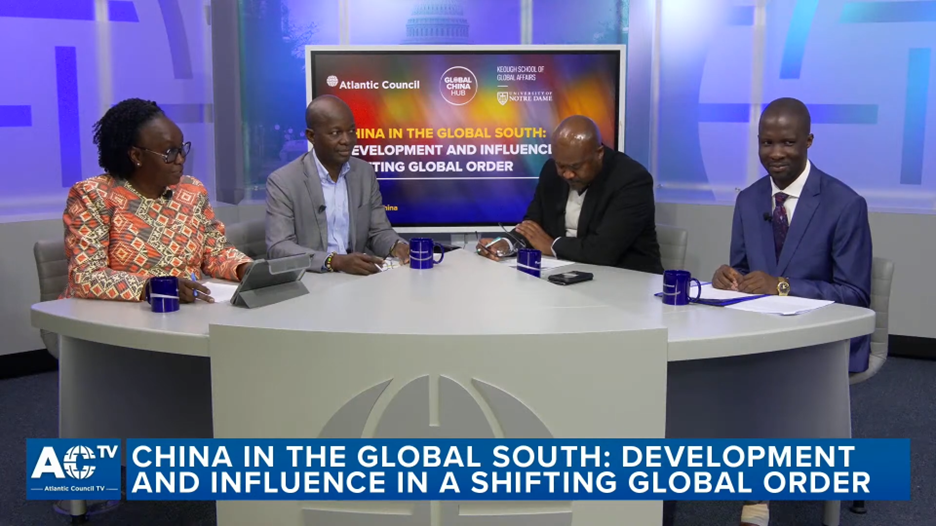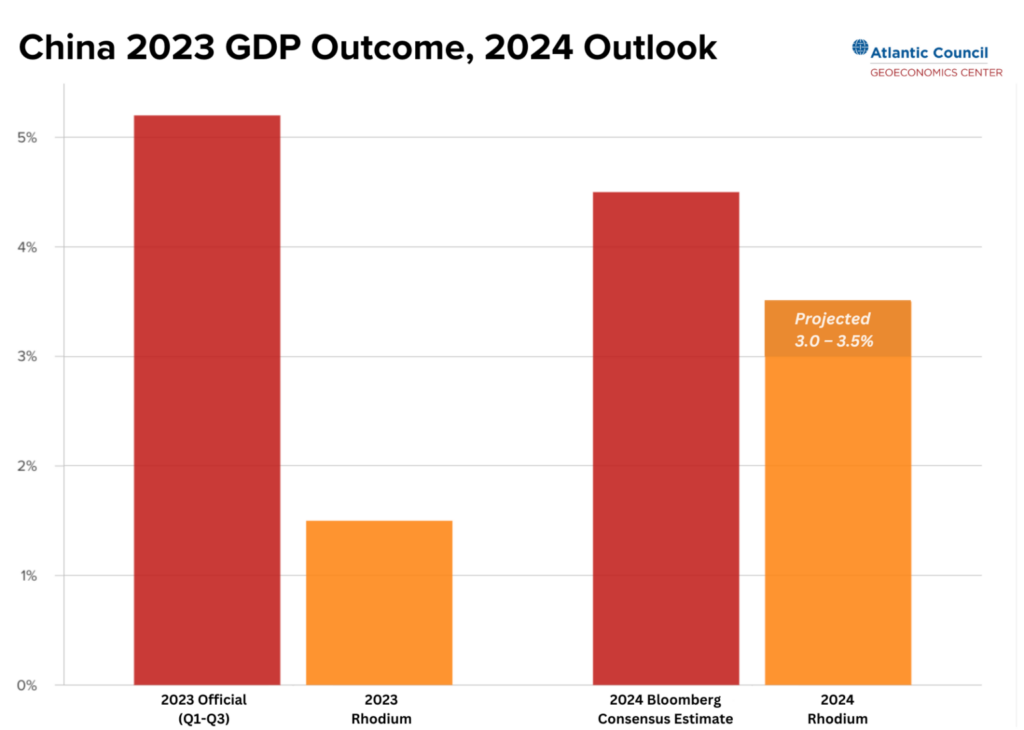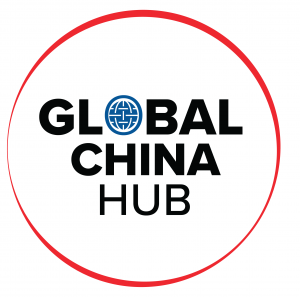Global China Newsletter: Two Sessions, zero reasons for economic optimism?
Subscribe to the Global China Hub
All eyes are on China’s “Two Sessions” this week, the annual gatherings of China’s rubber-stamp legislature and top political advisory body, where the hope is Premier Li Qiang’s first government work report will produce something – anything – to spur confidence in China’s economic trajectory.
While Li is likely to announce tactical measures to boost short-term confidence in the economy, there is little sign more robust stimulus measures are coming.
More fundamentally, as noted in this month’s edition of Global China, Xi Jinping has not indicated he will relax government control over the economy or initiate long-deferred structural reforms required to prevent economic stagnation.
Meanwhile, Li’s work report may underscore China’s strategy to push back on US global leadership through greater engagement with the Global South, as laid out in Xi’s speech to the Party’s Foreign Affairs Work Conference in December.
But will China’s bid to “lead” the Global South be hobbled by long-term economic stagnation?
That was a central question at the Global China Hub’s conference last month, “China in the Global South: Development and influence in a shifting global order”. Experts debated the impact of a sharp contraction of Belt and Road Initiative-related loans in the wake of China’s slowdown and Beijing’s shifting risk appetite in developing countries – and whether this opens up opportunities for other lenders.
Bottom line: Given the strategic importance Beijing has assigned the Global South, Beijing will devise new ways to bolster its influence in the developing world – particularly in the technology domain – even as it pivots from bankrolling new infrastructure projects.
Our editor-in-chief Tiff Roberts has much more on all this and everyone’s favorite hot topic, TikTok, below… Take it away, Tiff!
-David O. Shullman, Senior Director, Atlantic Council Global China Hub
China Spotlight
China and the Global South: the push into Latin America
China benefits from the “stability and the opportunity that the international order provides but … [undermines] those principles,” the Assistant Secretary of State for East Asian and Pacific Affairs, Daniel Kritenbrink, said at the Atlantic Council’s China-Global South Conference, citing the PRC’s use of economic coercion and attempts to subvert universal human rights. As it becomes “more repressive at home and more aggressive abroad,” China pushes “an alternative vision for global governance.”

A key arena in the Global South where China is intent on displacing US influence is in Latin America, partly driven by its interest in tapping the region’s rich energy resources. “China’s increasing role in the economies of LAC countries in recent years is well documented,” writes our senior director, David Shullman, citing the $138 billion in loans provided by China’s policy banks between 2005 and 2020 and soaring regional trade with China up from $12 billion in 2000 to $445 billion in 2021.
Shullman describes China’s efforts to differentiate its approach from the US, “emphasizing a mutually beneficial (“win-win”) arrangement with countries irrespective of their politics or internal affairs.” To counter Beijing’s narrative, Washington should use “strategic messaging with greater attention to LAC countries’ needs,” he writes.
TikTok: a national security risk for the US?
Worries that China could use the wildly popular app TikTok to undermine national security are widespread across the US and not just in Washington. That includes Montana, where I write from and run a China program at the University of Montana’s Mansfield Center. Montana became the first state in the country to pass legislation mandating a full ban of the app, only to see it temporarily halted by a federal judge, who called it potentially unconstitutional.
How real are the fears? Rose Jackson, Seth Stodder, and Kenton Thibaut of the Council’s Digital Forensics Research Lab dig into that question in, “TikTok: Hate the Game, Not the Player,” concluding that Chinese ownership of TikTok poses a “unique risk” to the US Under China’s National Intelligence Law, its intelligence agencies could “commandeer TikTok” and require it hand over data on US users, as well as “assist in influence operations and disinformation campaigns against the United States.”
But a focus on TikTok ignores bigger picture “systemic risks” from the “ungoverned social media ecosystem,” while a ban would not make Americans safer, they argue. China and other foreign adversaries can legally purchase data on Americans from multiple other sources, and as Russia has repeatedly shown, the US’s own social media platforms including Facebook and X, are “easy to exploit” to “shape US public opinion and divide Americans amongst themselves.”
Behind the Headlines: Why China’s foreign minister cares about de-risking
The global economy is hurt by protectionism, and attempts “to shut China out in the name of de-risking” is an “historical mistake,” warned Wang Yi on February 18. Why did China’s foreign minister sound the alarm about the perils of economic decoupling at the Munich Security Conference, where discussions usually focus instead on matters of war and peace? That’s because Chinese officials recognize that if countries and companies continue to pull investment from China – and FDI last year grew at the slowest pace in thirty years – it will hurt its struggling economy, further deepen a crisis of confidence amongst consumers and companies, and even undermine social stability and national security.
How bad is it? A long-running collapse in the value of Chinese stocks driven in part by US-China tensions has erased trillions of investment dollars, delivering “another blow to an economy beset by property crisis, slow growth, and deflation, and… may be the last straw for foreign institutional investors, writes the GeoEconomics Center’s Jeremy Mark.
“Capital outflows are expected to continue,” predicts an issue brief from the GeoEconomics Center and Rhodium Group which notes increasing skepticism about China’s optimistic official data which put growth last year at 5.2 percent (the real figure was at best 1.5 percent its authors say.) “Beijing must soon acknowledge that slower growth… is here to stay” which will “bring spillovers to trading partners,” the brief concludes.

Ultimately, China’s economic problems are self-inflicted, argues the GeoEconomics Center’s Dan Rosen: “more secular stagnation will come – until Beijing gets back to long-deferred structural reform work that President Xi Jinping started in 2013 only to pause in the face of challenges.”
Unfortunately, that’s unlikely to happen at the ongoing Two Sessions or anytime soon afterwards. As I told VOA, Xi “doesn’t believe in releasing control over the economy,” which is what China needs to meet the challenges. (Fun fact: I covered almost two dozen annual legislative meetings as a reporter in China. Here’s one from 1998, when China also faced economic strife.)
ICYMI
- The Hub’s Didi Kirsten Tatlow writes in Newsweek how China is building a vast, AI-based intelligence platform, known as “Supermind,” to track millions of scientists and researchers worldwide. This platform would reportedly assist Beijing’s efforts to capture breakthrough technologies for industry and the military, and recruit potential talent.
- The Europe Center’s Francis Shin published an article in The Diplomat on EU-Taiwan relations following the Taiwanese general election last month. The article discusses how the EU can deepen its trade and investment relations with Taiwan and the political support it can provide through interparliamentary channels.
- Two years after the initial invasion, Russia’s imports have stabilized, as the GeoEconomics Center’s Niels Graham writes about how Chinese exports have replaced the EU as the lifeline of Russia’s economy. New industrial and consumer exports from China have replaced trade from the US, EU, and G7.
- It’s Italy’s time to cement itself as the indispensable Mediterranean nation, according to the Hub’s Kaush Arha and Europe Center’s Paolo Messa, particularly after refusing to renew its memorandum of understanding with China’s Belt and Road Initiative and as this year’s host of the G7.

Global China Hub
The Global China Hub researches and devises allied solutions to the global challenges posed by China’s rise, leveraging and amplifying the Atlantic Council’s work on China across its 15 other programs and centers.

Follow us on Twitter @ACGlobalChina